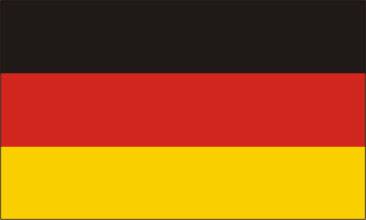Germany
Germany is a country located in Central Europe. It is officially known as the Federal Republic of Germany and has Berlin as its capital and largest city. Here are some key facts about Germany:
1 - Geography: Germany shares borders with nine other countries: Denmark to the north, Poland and the Czech Republic to the east, Austria and Switzerland to the south, France, Luxembourg, Belgium, and the Netherlands to the west. It has diverse landscapes, including the North German Plain, the Central Uplands, and the Bavarian Alps.
2 - History: Germany has a rich and complex history. It was once divided into numerous states, but it became a unified nation in 1871. Germany played a major role in both World War I and World War II. After World War II, the country was divided into East Germany (German Democratic Republic) and West Germany (Federal Republic of Germany), which reunited in 1990.
3 - Culture: German culture is known for its contributions to music, philosophy, literature, art, and science. Famous German composers include Johann Sebastian Bach, Ludwig van Beethoven, and Wolfgang Amadeus Mozart. Germany is also known for its Oktoberfest, Christmas markets, and traditional folk festivals.
4 - Language: The official language of Germany is German. It is one of the most widely spoken languages in Europe and is part of the West Germanic language family. German dialects and regional variations exist across the country.
5 - Religion: Germany has a diverse religious landscape. The majority of Germans identify as Christians, with Roman Catholicism and Protestantism being the main denominations. However, Germany is also home to significant Muslim, Jewish, and other religious communities.
6 - Economy: Germany has the largest economy in Europe and is one of the world's leading exporters. It has a highly developed industrial sector, with key industries including automotive manufacturing, engineering, pharmaceuticals, information technology, and renewable energy. Germany is also known for its strong emphasis on vocational training and apprenticeships.
7 - European Union (EU): Germany is a founding member of the European Union. As the largest economy within the EU, Germany plays a significant role in shaping EU policies and decision-making processes.
8 - Education: Germany has a well-regarded education system, including numerous universities and research institutions. German universities are known for their high academic standards and have produced many Nobel laureates and influential thinkers.
9 - Tourism: Germany is a popular tourist destination, offering a mix of historical landmarks, vibrant cities, picturesque landscapes, and cultural events. Visitors often explore attractions such as the Brandenburg Gate and Berlin Wall in Berlin, the Cologne Cathedral, the Neuschwanstein Castle, the Romantic Road, and the Rhine Valley.
These facts provide a general overview of Germany, but keep in mind that the country is diverse, and regional differences and nuances exist within its borders.

